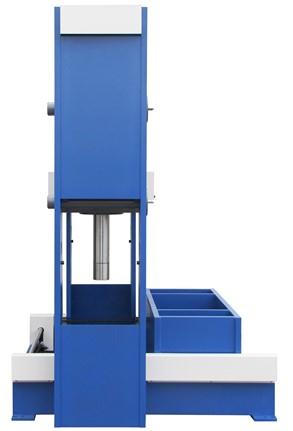The machining, or metal forming, process is hugely varied; and there are numerous ways to manipulate and transform metal. Roll forming and stamping are two of those, and when performing a process like those nothing works better than a hydraulic press.
Hydraulic presses are used much more than you may realize. Pretty much every machine shop will have one on the floor as they are used to form and shape metal. Used in creating everything from the most delicate of designs in jewellery to heavy-duty truck production; shop presses fit the bill.
But what considerations must one take when looking for a press that meets your project’s needs? Read on and learn a few of the key considerations for choosing a
hydraulic press:
Ultimate Tensile Strength (UTS)
Ultimate tensile strength (UTS) also called tensile strength (TS) is the maximum amount of stretching force that can be applied a given material before it breaks. The opposite of tensile strength is known as compressive strength, and this applies to the amount of pressure that can be applied before the material will deform under compressive pressure.
Force per Unit
The equation used to obtain the tensile strength of metal is calculated by dividing the area to be stretched (or cross-section), by the force applied. This is known as the force per unit area. The unit that is used to calculate the results are pounds of force per square inch (lb f / in2, or psi) or kilo-pounds per square inch (ksi) which is the equivalent of 100 psi. The generic unit of measurement used is ksi.
It’s critical to know the tensile strength of your materials because the operator must have clear parameters for the applications to perform.
Compressive Versus Tensile Strength:
Compared to other materials that can be shaped by a hydraulic press, steel has an important tensile strength. In fact, the tensile strength of steel is nearly identical to its compressive strength. This means that steel is able to withstand an equal amount of crushing and stretching before it reaches its breaking point. Compared to that, another material, like concrete for example, has a high compressive strength but a low tensile strength.
Knowing Your Materials
Whatever the material you choose, it’s important to know the tensile strength before any operation can begin. Heat tolerance, hardness, corrosion resistance and the ability to be welded are factors that must be considered.
 Français
Français
